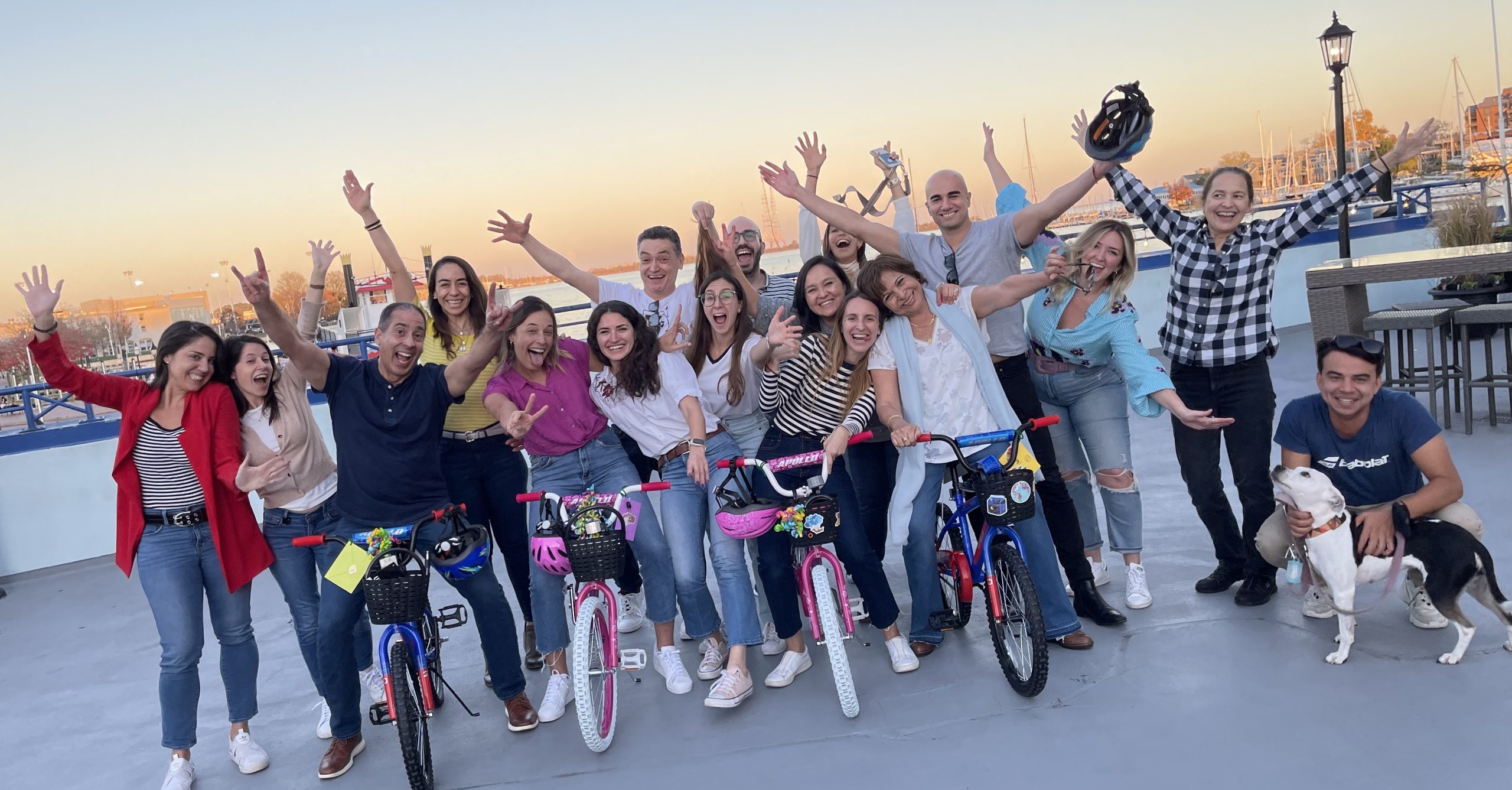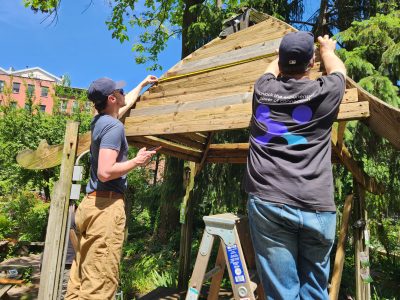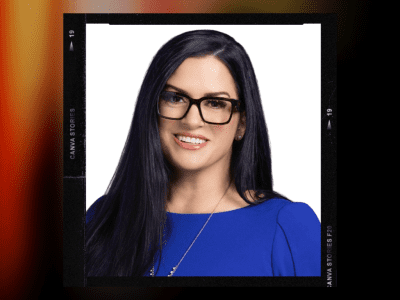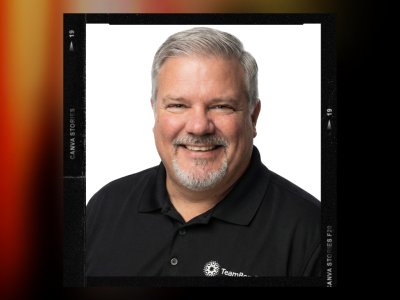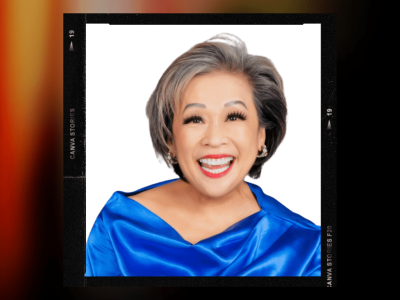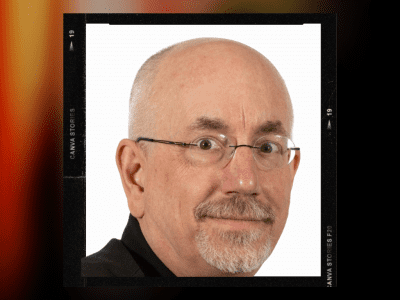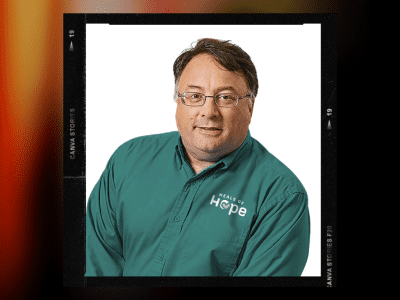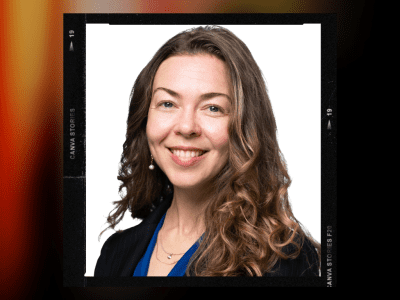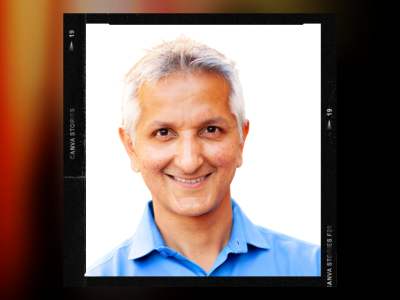STRONG TEAMS DON’T HAPPEN BY CHANCE 
The Age Advantage
w/ Meghan Grace
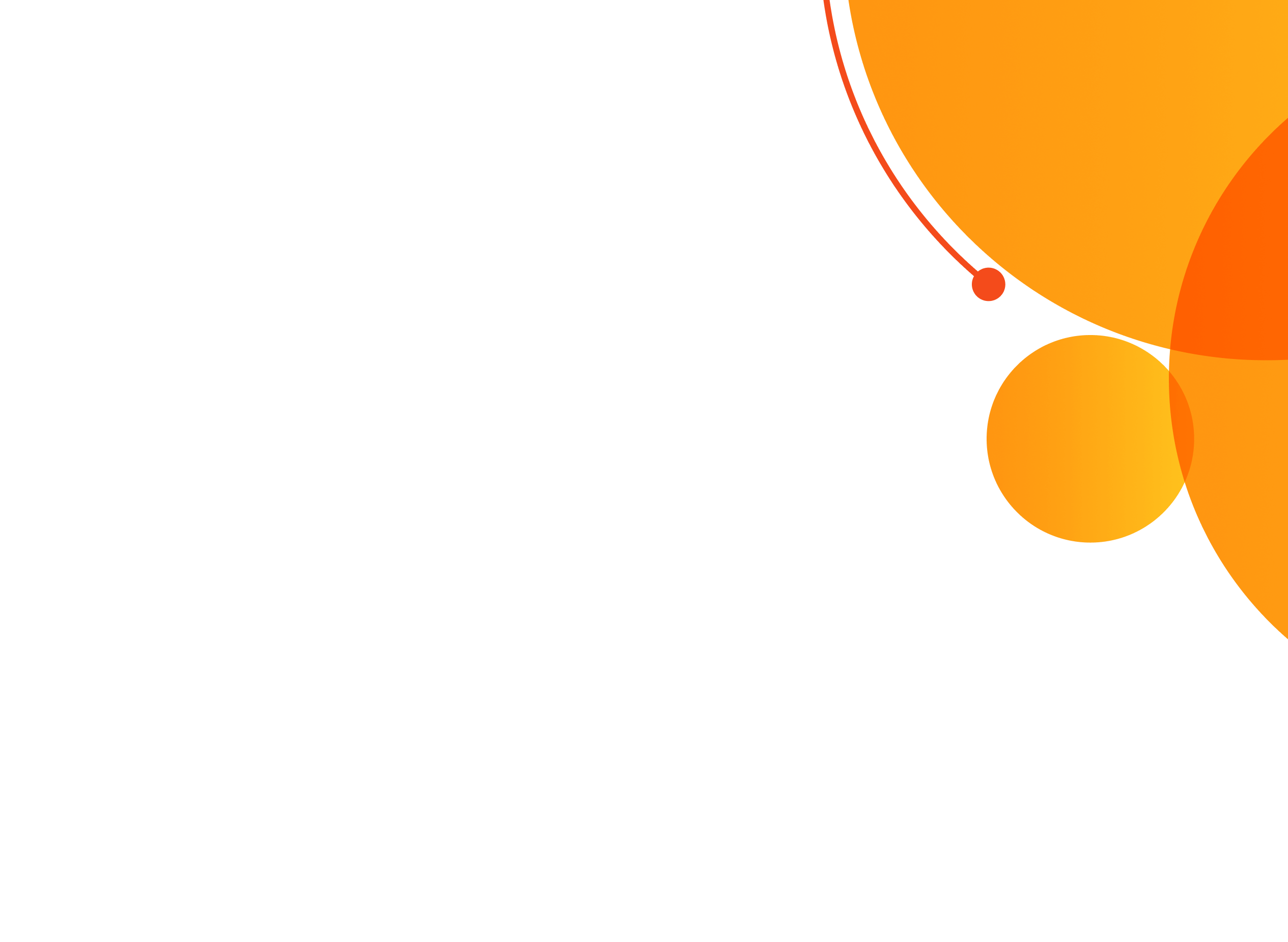
Use the buttons above to listen now.
Transcript - The Age Advantage
Rich Rininsland: On this episode of Team Building Saves the World.
Meghan Grace: Humans weren’t built to work. We weren’t designed to work where we find our fulfillment has changed significantly because of the way that work has really wedged its way into our lives.
Rich Rininsland: Right?
Meghan Grace: I felt like I was like shepherding people into a new lifestyles.
” Come in, I’ll teach you how to still be productive in your sweatpants.” Like it’s possible.
Gen X, you should be scared of Gen X ’cause they ain’t scared of nothing. That’s what I think about them. They’re not scared of anything.
Rich Rininsland: Hello team. It’s me. Your old friend, Rich Rininsland host of Team Building Saves the World, and today we’re discussing one of my favorite topics, generations in the workplace in an all new way with researcher and author of such works as “The Campus of Tomorrow”, “Generation Z, A Century in the Making” and “Generation Z Goes to College”, among so many others, Dr. Megan Grace.
But first, I have to share some love with all of my supporters at TeamBonding. If your team is ready to experience teamwork through the power of play, then visit TeamBonding.com to learn more.
Now team, it’s time to learn all about the similarities, differences, and benefits of all the generations.
With the host of the #GenZPodcast, Dr. Megan Grace. Megan Grace, thank you so much for coming on the pod today. It’s so good to have you here.
Meghan Grace: Thanks for having me, Rich. I’m excited to be here.
Rich Rininsland: Thank you. Let’s start right away. What was it that actually sparked your interest in generational dynamics in the workplace?
I mean, was there something that happened that said, this is going to be the focus of my studies or my career, or what have you?
Meghan Grace: No, it was all by accident. Really, we actually started the exploration of generations. We, being my co-author, Dr. Corey Seemiller and I, way back in 2013/2014, when we started to realize like our students just felt different.
We were working in higher education and then we realized there was a different generation coming in. And so when they were asking different questions. When they were coming to campus and trying to engage with leadership programs in different ways. It’s where our start with Gen Z really came from was when they were in college, things just felt different.
And so we studied them for a long time, and then about two, two and a half years ago, they’ve been really formally in the workplace. They’ve been there for a few minutes now. And so we said this is probably a good time to start thinking about Gen Z in the larger context of the fact that in the workplace, they’re not solely by themselves as a cohort,
Rich Rininsland: right?
Meghan Grace: But they’re interacting with potentially three or four other generations at any given time. And so it was a really good time to start thinking about generational dynamics in the workplace. Now that we had a pretty strong contingency of Gen Zers in that space. It’s also a really unique time to be studying generations because we’ve got Baby Boomers, some of our older teammates and team members who are sticking around longer than previous generations, so they’re working longer.
And so the idea that, “oh, they’ll just phase out”, is not necessarily true because if they’re maybe retiring from their first career, they’re taking on like the “golden career” or the second career or the hobby career. And so, Baby Boomers are still very in the workplace. It just is, it’s looking different for them than previous generations who were like, “I’m 65. I’m packing it up. I’m good here”.
Rich Rininsland: But let me ask you, let’s go back a little bit to something you said. What was it that you saw that was so different for the Gen Zers in college that they brought forth into the workplace?
Meghan Grace: So they were asking questions like at new student orientation that just felt different.
So things like, “well, how is this leadership program going to help me with my future career?”
Rich Rininsland: Hmm.
Meghan Grace: And they were asking that at like 17 and a half 18 preparing to, you know, start their studies. And previous generations were, they were asking kind of questions of the program a little bit more of like, “how’s this gonna help me get involved and meet peers on campus?”
And it kind of was, it was there. And Gen Z was just very pointed in those questions really early on of like, right, “well, how am I gonna be able to create change and create a positive impact through this program?” And we’re like, “whoa, whoa, whoa, whoa. We just want you to make some times and have a good time.”
Rich Rininsland: Let’s become sophomores first, then we’ll get into these discussions.
Meghan Grace: Right? And they were like, “but how can I get the most out of it, the earliest in my career possible? The earliest in my time?” And so they were taking even leadership programs, which were extracurricular, co-curricular at the time, very seriously as like a resume builder experience opportunity, like elements of the program we were working with, like had small internships where in their second year they would kind of intern either with the program or a local nonprofit.
They’re: “but can I do it the first year? I need to intern my second and third year in industry with my major”. And I was like, I didn’t even have a major until the second semester of my first year. So, good for you for being so ahead of the curve.
Rich Rininsland: What do you think brought that about in them?
I mean, was it coming from the parents that they had who realized that they should have gotten an earlier start and were kind of getting it into their children that you need to hit the ground running as fast as you can, or is it something more culturally significant that I’m just completely missing?
Meghan Grace: I think there’s a little bit more cultural significance of Gen Z has been really good at observing older generations in the ways that others just fell flat on their face. And they saw Millennials that were like I’m like, archetype of this. Like, went to college. I was like, “I’ll figure it out. I’m gonna have a good time. Make some friends, see what happens. You know, these are my time to explore myself”.
Rich Rininsland: Right.
Meghan Grace: And nothing to say that like Millennials doing that, because that was a very traditional mindset of like, why you went to college, just economically did not pan out for them. And, and Gen Z saw how a lot of Millennials enter the workforce with forces working against them in the economy the recession in 2008, under employment for a really long time, almost like delayed career success because of some of these economic factors and Gen Z at a very young age saw that whether they were older cousins or just people in their life, and they said, “I’m going to do everything that I can to not have a delay in my career success”. And so they’ve been able to kind of study a little bit more.
And I think another piece of it is the cost of college has gone up significantly and Gen Z’s very debt averse and they’re financially very good at planning ahead. And so they looked at college and said, “if I’m gonna be here for four years, I’m gonna get the most out of it. I’m not wasting time. I mean, I have a good time. But I’m, I’m gonna take this seriously”. And so I think that they’ve taken their approach to college search and their time in college very seriously of a, “we’re paying tens of thousands of dollars to be here, so we don’t wanna wrap up a bunch of debt. I wanna get the very most out of it”.
So, they were coming in with very, I would say, informed consumer decisions. That’s like when you go buy a car and you’re like, “I don’t need you to sell me on this. I’m gonna ask you all the questions because I know what I want already”.
Rich Rininsland: So what do you think is just, if backtracking entirely, ’cause of course now the team knows we’re talking about generations, but… What do you think is one of the biggest myths that the significant generational differences that we’re facing today are, and what are some of the truths that we hope aren’t?
Meghan Grace: Yeah, so I think one of the biggest myths, and it’s one that is handed down and we like to recycle and repeat. And it’s kind of, to me it’s like worn out and faded is that every younger generation is just like lazy and they don’t get it.
Rich Rininsland: Right. That’s clearly everything you’ve just said showing that’s not true.
Meghan Grace: Right. “They’re just so lazy”. But that was applied to Millennials when they were graduating and entering the workforce. It was applied to Gen Xers who were like at the forefront of like grunge, punk eighties, the anti-establishment kind of nonsense there. And so like, they were rebelling against society, so they were lazy. Baby Boomers were hippies at one point, so they were lazy. It’s just, it’s very recycled and I think it’s this big myth that every generation’s lazy as much as the truth in it in my mind is that:
Generations do things differently at that stage of being in their young adult and adolescents because the world is different. And so they’re just learning how to do things differently than previous generations. And so it’s a lot easier to assign like kind of a lazy label of being lazy,
Rich Rininsland: right?
Meghan Grace: Than to say, “oh, maybe this group of people is just doing it differently than my peers and I did it, and that’s completely okay”.
Rich Rininsland: Hmm. And you had mentioned how the students were asking the big questions of “what can I do to make change during all of this?” Which brings to mind, I mean, myself, when I first went into the marketplace, when I was a young person starting out in my life, all I was worried about was getting a paycheck every week and to make sure that I could make the most out of that. But what kind of generational differences are we looking at in what they want outta the workplace or in the workplace?
Meghan Grace: I think for younger generations we’ve learned, like Millennials and Gen Z we wanna see the world become a better place.
It’s not that prior generation didn’t. It just felt like prior generations had a little bit more of a promise that that was gonna actually happen. And so they could enter a job and say, I might be working for the corporate man, and that’s fine. I’m gonna collect this paycheck. I’m gonna go do my passion oriented work in my thirties, forties, and fifties.
I think especially with Gen Z and for some Millennials they’re like, truthfully, it feels like some stuff is just literally on fire. So the world could end any moment. We don’t have a promised future, so I’m gonna use the time that I have now to do the good that I can. And it’s a little bit nihilistic, but at the same time, altruistic in this space of, ” I don’t think we can wait”.
I think there’s a little bit of urgency that we need impact driven leaders earlier in their careers. And that’s just something that they value of the, the paycheck will come.
Rich Rininsland: Right.
Meghan Grace: But the creating good for others is not something that we as humans and as a society can just like, put on the back burner and be like, “we’ll get to it when we’re in our fifties, when we are also busy with other things”.
Rich Rininsland: Sure. But also including from guests I’ve spoken to in the past where we’ve talked about generational, but only on like a surface level, in previous incarnations during this podcast, the lot of the newer workforce that’s coming in also seems to want to be shifting the dynamic or working hard to shift the dynamic of business itself.
Can you talk about that a little bit?
Meghan Grace: Yeah, I think we’re seeing that younger generations want the ability to have work, be efficient so that we can spend time doing the things that I think fill humans a little bit more. So having more meaningful connection, having more intentional conversations about ideas and brainstorming, producing social good or good out of the work that’s being done.
And I think that that can feel really threatening to some older generations of, ” well, aren’t we doing things right already?” I’m like, “yes, we are doing things right, but is there a way that we could be, for lack of better words, more efficient to buy back our time to do the things that…”, like humans weren’t built to work. We weren’t designed to work. It was just something that we created to fill our time. And it’s kind of like spiraled into this monster of a beast. But humans were meant to have connection with others and to live fulfilling lives and. In some cases, the work industry has really drained that from a lot of people.
And so younger generations, again, it comes back to this like, well, tomorrow’s not promised. And so let’s find ways to do our work smarter, potentially faster. Not necessarily, not as well, but. In a way that allows us to get back to the things that I think really matter to most people, regardless of where they come from and whatever walk of life.
If no one’s really like “can’t wait to go clock my eight hours to not talk to anybody”.
Rich Rininsland: Exactly. I remember very specifically when the whole phrase of “you work to live, you don’t live to work” was really driving for, you know, when in my youth being a staunch Gen Xer Yes.
I’m sorry folks, we do still exist and we should be listened to occasionally.
Meghan Grace: From time to time. Yeah. We’ll let you talk from time to time.
Rich Rininsland: Thank you. Thank you very, I appreciate that, Megan. That’s also part of the reason I agreed to do this podcast. But anyway, what other kind of things do we find now that this is coming to the fore?
Because like you said, there’s gotta be some butting heads of those generations that are like, who are the ones now in the C-suites who are saying, “no, no, just work. We, we need the work. We can do all the rest, you know, in your free time, but we just work”. And those are saying “no work should also be, you know, adding to these ideas of community and giving back and so on and so forth”.
What kind of conflicts are we seeing beyond that?
Meghan Grace: So I think there’s a, if we wanna like zoom out really societally of how human interactions have shaped, especially in American culture. And generational research is very US centric. We’re trying to change that. And you know, think about how like societal context really does shape a generation. But there’s some intergenerational or kind of like global elements of generational dynamics as well.
But when we think about in a very US context, the role of work and how people gather has evolved rapidly and we weren’t really paying attention. And so like way back when, you know, you clocked in, you did your nine to five, you clocked out, you went home.
Rich Rininsland: Right.
Meghan Grace: And the, the predominant element of community was your neighbors, your church.
There was a life outside of work and so it felt very like you could turn it off and you had your social connection out there. That’s really started to evolve as work became really, really prominent as an identity for most Americans that then they’re like, well, I don’t have time to get home to have community with my family. I don’t have time to get home, to have community with a faith community, a local community group whatever it is. And so like that idea of third space gathering was, is really critical for humans to develop an identity outside of being a productive cog in the machine.
And so at that point, it’s like you can’t turn off what humans are hardwired to do, which is we’re pack animals. So to have connection with others, even our most introverted people want to have people in their lives. Like that’s pretty much like if you aren’t, then like, you gotta be concerned about your, like psyche.
But work started to step in and say, “but we can be your community. So we can be your place where you’re eating lunch, going to the gym where you are making your best friends”, because workplaces figured out that if they fulfill this social element that humans crave in need of human connection they’re likely to keep them there. So it was like a weird hostage takeover of like keeping the people at work and work was an identity. And in America we have a very strong connection to the work that we do. It’s like the first thing you ask ’em is like, so what do you do?
Rich Rininsland: Yeah. Yeah.
Meghan Grace: And, and other countries don’t do that.
So there’s this shift of older generations were like putting in the work, doing the hard work. They were doing their nine to five but then they’re able to go home and turn it off. And so they got ahead at that time when that was what was necessary to get ahead in their career.
Younger generations… there was a little bit more of that, that pressure to be like, you always have to be on, you’re gonna have your work email on your phone. You’re gonna check it at night because you know. Joe, your boss needs something at 10:00 PM because that’s, you know, when he decided to send you the email. And so a lot of Millennials and Gen Z kinda woke up and they were like, “my whole life can’t just be work, and so I’m gonna have a boundary around it”.
Because what works for older generations doesn’t necessarily have to work for younger generations because the world has changed significantly. Our community structures have changed significantly where we find our fulfillment has changed significantly because of the way that work has really wedged its life or its way into our lives.
Rich Rininsland: So how is this affecting, especially this, this want of change affecting team dynamics in a workplace?
Meghan Grace: So I think you get a little bit of a split. Some of the younger generations are still really willing to like, put in those extra hours to be present and develop those relationships with their colleagues. And being a good team member. And it kind of look, let’s just call like the traditional sense of like always being on, always being there.
Rich Rininsland: Right.
Meghan Grace: There’s another camp of younger generation millennial and Gen Z who are like, “I gotta protect my piece. I’m going home at five o’clock”.
And that kind of sits weird with people of that like, “how dare you not do the thing that I did or that I’m doing to get ahead?” When other people are potentially like, “I would like to draw a line in the sand and go be with community in my own way and not feel forced to do it”.
So there’s a little bit of the… we’re assigning success to a presenteeism where you’re like, you’re there, you’re present. I should get extra points for being present.
Rich Rininsland: Right, right, right.
Meghan Grace: Which is not necessarily always the case. It’s like good work that produces positive outcomes. And so it does affect team dynamics because we know that when people are connected to a teammate, they’re more likely to stick around.
Those workplace relationships do have critical impacts on retention and we employee happiness.
But I think it is very vain of workplaces to believe that the only way that people can develop strong relationships with the people they work with is by clocking over time or being required to go to happy hour that people don’t wanna go to.
Rich Rininsland: Right? I mean how many people are expected that they’re going to marry somebody from the workplace? That those relationships are the ones that are going to become the strongest, and that’s just going to make you want to be at work more often.
Meghan Grace: Or that, that’s the place where you’re gonna meet your friends.
And I think that that’s again, a weird, like I’m coming across this like very anti-corporate life, but it’s a weird thing to say, “well, you’re only gonna make friends at work”. So then the only social value in our life comes from work.
Rich Rininsland: Exactly. Right. Exactly right.
Meghan Grace: That’s a really dangerous place because it can keep people that are unhappy in their job present because they’re scared to lose a relationship, like a friendship or the ability to hang out with their work bestie.
Rich Rininsland: And what’s wound up happening with, especially since the pandemic, work from home. I mean, are we seeing that there’s a generational shift in the way that working from home is viewed? Are the older folks still expecting to want to go to the route, to the workplace to drive the hour to work and the hour home?
While the younger are still the ones who want to sit home just like you and I right now, or is there more crossover?
Meghan Grace: I think that’s a, it’s gotten a lot more nuanced. So I worked from home even before the pandemic, so I felt like I was like, shepherding people into a new lifestyle was like, “come in, I’ll teach you how to still be productive in your sweatpants”.
And I think that we learned a lot about the importance of workplace relationships in remote digital settings. But to me, if you have to rely on being in the same space to have a connection with someone maybe your social skills aren’t as good as you say they are.
I don’t know, like I predominantly work remotely, and don’t get me wrong, I love when I get to see my colleagues and people that I work with in person, but like, I still feel very connected to the people I work with.
Rich Rininsland: I have been told many times in my life that people like me a lot more when they can just mute me.
Meghan Grace: So yeah, they’re like, “I’ve had enough of you. Goodbye”. And they think you can unsubscribe for a minute.
I think that in a real sense, the idea of work remote… When you are thrust into it, like we were in the pandemic for some industries, it was like “we can’t do it”. Like my best friend’s, a pharmacist, she kinda needs to go counsel people, it’s kind of hard to do online. There are some people that do it, but to some degree most people wanna talk to their pharmacists in person. That is completely fair and valid. But there are some places that are just pushing people to go back when there really isn’t like… you really can’t do your Excel spreadsheet at home?
Rich Rininsland: Yeah, it always seemed to be a matter of overhead. We are renting this space or releasing this space and nobody’s using this space.
Meghan Grace: And no one’s using the space. How dare they not use the space? But that does come back to the fact that like we do need to leave our houses from time to time.
As someone who went through the waves of like, I’m out of the house too much for work and then I’m not leaving the house enough. Like I still go to a coworking space or a coffee shop for at least a half day every single week. I is just like, I gotta go see a human that doesn’t live in my house.
And I think that we’re seeing with younger generations, this idea of work from home is actually more couched in flexibility. Gen Z surprisingly was like, “yeah, I’ll go into the office, but like, you gotta make it meaningful. I don’t mind doing two days in. But I don’t need to come in to do my spreadsheets”.
Like if we’re gonna be in for two days per week, I want those to be collaboration days. I want those to be the days that we’re connecting the things that yes, are probably a little bit easier when we are all together in the same room.
But I don’t need to just go sit in a floating desk cubicle to do my emails when I could do my emails in my sweats from a coffee shop kind of thing.
So I think it’s the what is the purpose and intention around work from home and kind of navigating that nuance and that flexible workspace is really necessary. Because there are also some companies that are like, “okay, you can work from home, but you need to be on from 8:00 AM not 8:01, 8:00 AM to 5:00 PM or later. And your little light on Teams needs to be green. That’s not flexibility. That’s just shackling people to a different desk.
Rich Rininsland: Yeah. Yeah. Exactly right. Exactly right. And I’ve heard so many people over the podcast history that have talked about how, especially when they were coming back from the pandemic, you know, you have to come back every Monday.
Well, why Every Monday? Well, that’s when we have beginning of the week meetings and we want those in person. That’s 20 minutes of my day. And you’re telling me that I have to drive an hour to specifically do 20 minutes. And then have nothing else to do except for my regular work that I could do from home.
So this brings up the question, especially now still, what do we find that managers, those people that have to actually oversee these different generations, what are they still, I don’t wanna say getting wrong, but missing opportunities about.
Meghan Grace: Ooh, I love this. I’ve been using this kind of framing for a while about managers.
You can always identify like a bad manager, right? But a good manager is so good because like they’re present in the ways, like they’re just value added in your life.
Rich Rininsland: Yeah.
Meghan Grace: And I always say good managers focus on one, knowing their people regardless of generation. And proactively blocking and tackling challenges.
So I, when I was managing a team, I always told them my number one goal is to identify needs and barriers in the way of your success. And then it’s my job to remove them.
So I always thought of my life as, okay, let’s anticipate a potential challenge and then let me block and tackle it for you so that you can do what we hired you to do, which was your job.
I should not be making your life harder. I should be making your life easier.
Rich Rininsland: Right.
Meghan Grace: And I think that that’s something that managers, sometimes they feel like they have to have, like they need to know all the information. They need to know every task, every meeting, everything that’s going on.
And that’s not managing, that’s just driving yourself crazy. Good managers know how to build trust and foster trust, but then they also know how to listen to their people. And I think that that’s a, like a really missed opportunity is to truly listen and then ask the question that so many managers don’t is: what do you actually need from me to do your job effectively?
Rich Rininsland: Okay. How do we get them there though, if they’re not the ones doing that, you know? In in what ways can the different generations even tell their management, we need you to do X, Y, Z.
Meghan Grace: It’s a lot of the interpersonal skills and which is what you all do, right?
The team building and the learning how to listen, the learning how to build trust. Trust and psychological safety are just like really the backbone of a good workplace in my mind and a good work team. And that takes time and a focus on interpersonal. Like, let me get to know you and understand you.
And I think that’s always on the onus of the leader or the manager, whatever term you wanna use, that it’s your responsibility to spend the time to know that person and to get to know them. And to create spaces for them to share who they are. Because again, at the end of the day, you hired them to do a job, but if you are the reason why they can’t get their job done, we need to not point the finger, but we need to look at the three pointing back at us and be like, huh. Maybe it was me.
And I think there’s a lot of deflection of responsibility sometime with managers that we need to really say, it’s my job to be a central spoke and to get people there. It is a matter of strong relationship building and not in a way that is “tell me your favorite color”.
But maybe getting past that. Yes. ” What’s your favorite color and why?” And then getting into like the, ” what are the things that motivate you?”, “What do you really want out of this life and what do you really want out of this work?” Because I need to take that with me. And I think that each generation looks at work differently.
They’re motivated by different things. They want different things out of life. And I think good managers that toggle between generations recognize that different generations come, in my opinion, from different worlds. They come from completely different worlds. And so their mindset on work, their motivation to work is different, but it is the responsibility of the manager to spend the time to really understand what is this person motivated by? What does this person need? And being in some cases, vulnerable enough to even ask those questions.
Rich Rininsland: And being from those different worlds, they have different wisdoms, they have different understandings, and they have very much different strengths. What are some of those strengths that you think those managers need to help integrate and encourage through all the different generations?
Meghan Grace: So I think I always start with like the oldest and go youngest. ’cause it’s easier in my mind to keep everyone sorted out.
Rich Rininsland: And that’s what the boomers are doing anyway, so you might as well
Meghan Grace: Correct? Correct. I’m gonna let them go the first. So for our Baby Boomers, for the most part, they learned how to do their job analog.
So in some cases their skill is so ingrained in their expertise because they learned how to do it with a pen and paper. Which sounds so archaic, but it’s not.
I have a hard time fathoming if I had to do my whole job, with pen and paper.
So, they’re very good at what they do, and we need to be really intentional about capturing their wisdom and leveraging the strength that they have, which is a rich history and understanding oftentimes of the mechanics of their industry.
Rich Rininsland: Right.
Meghan Grace: And, the historical knowledge and the context and so like, they are really people that we need to include from a quality assurance perspective to make sure that we are seeing it from the angles we need to see it from.
Rich Rininsland: Okay.
Meghan Grace: And we’re getting their, I don’t wanna say sage wisdom, that makes ’em sound like old people. But it’s really this idea of like, they’ve been in it for a second.
Like, I talk about my dad a lot as a really good stereotypical Baby Boomer.
He did learn how to do his job with pen of paper. And then he learned how to adapt and do it in Excel. And he learned how to adapt and do it into different softwares. But like if I said, dad, go do your job on pen and paper, he could. And that’s why he is very sought after in his industry. And if he wanted to leave, which he wouldn’t, he could be a year from retirement and still get a, you know, well-paying job in his industry, which is pretty great.
So Gen Xers, we can go to our friends Gen Xers. Gen X lived their life very in the analog world. They transitioned to the digital world, and so I find that their adaptability. Their flexibility and their autonomy. So, you should be scared of Gen X ’cause they ain’t scared of nothing.
That’s what I think about it. I’m like, they’re not scared of anything. They’ve walked themselves home after school and took care of themselves at like the age of 10. So they’re not scared of anything. And so they are adaptable, they’re autonomous. And I think that the idea of how to build trust and give trust to others is something that Gen X for the most part, are really good role models at, of like, I trust you, do your job. Please go do your job. Because they themselves wanna be trusted to do their job. And just leave them alone to do their job. So I think that’s a strength of theirs, they’re pretty good team captains and I think that they’re really good collaborators.
Rich Rininsland: Okay.
Meghan Grace: Millennials. We love to improve things. We love to innovate things. We love to think about a world that could be better and more efficient. And so I think where Millennials really thrive is we’re really good thought partners with Gen Xers. Like we get along really well with them. We’re kind of like the middle cousin that also plays translator to Gen Zers. We are right now a little bit of what I call like middle child, middle cousin of like, we get along with everyone, we kind of feel like everyone around us is crazy and that’s totally fine. But where the strength of Millennials comes out is this: could we do this better? Could we do this a little bit faster? Could we do it more efficiently?
So automation, innovation, no surprise that it comes from Millennials really being, growing up alongside with like evolving technology 2.0 and getting into technology 3.0. We were kind of like first wave like Guinea pigs of like, how would social media affect your brain?
And then Gen Z, I think their strength comes from, they are just, you wanna talk about people that can find information, they know how to get information and then utilizing that for good. This is a generation that oftentimes, I believe that the vast majority want to harness their superpowers of technology to make the world a better place.
And that’s why I think Millennials and Gen Z we get together, we’re like, “we can do this”. But Gen Zs, they wanna create a positive impact on whatever level that might be. And they bring a lot of emotional empathy to, to the spaces that they’re in and to a point where it’s like some older generations are alarmed by the amount of feelings.
And I was like, okay, but, I mean, they’ve kind of figured out a lot of other stuff, so, you know, let’s not shame them for having emotional depth. And so I think that they bring a clarity and a little bit of freshness around the importance of actually being a human. And recognizing the humanity of others.
And not too fluffy of a way, but in this, like, maybe let’s not be jerks to other people. And I think that that’s a fair strength for them to have.
Rich Rininsland: Yeah. And I gotta completely agree with you raising a Gen Z myself now who’s, you know, 19 in art school, loving life, having a good time with it.
But I will always remember back when she was 10 and she asked her mother and I, for the first time for a bearded dragon as a pet. And we were like going, neither one of us know anything about this. It’s never anything we ever thought we would have in our home. So, you have six months before Christmas, find out everything you can on how to raise and care for this creature.
Three months later, she gave us a 35 minute PowerPoint. We had never known she knew PowerPoint. We had never known. Her school wasn’t even teaching PowerPoint to her at that point. And she was just like, so here’s how we do this. Here’s what it is. You know, here’s how long they live. This is the food that they need. You need to make sure that they have, you know, not sand strata, but something. And we were just… dumbfoundedly amazed. So I went, “okay, can you go leave the room for a second? We’ll call you back in a few”. And she’s like, “okay, great”. And she walked out and I turned to her mother and I went, “oh man, we’re buying her a dragon, aren’t we?”
Because she did it. That’s how you, she did the work.
Meghan Grace: Yeah. I mean, that’s so funny that you say that. ’cause Gen Z does love a PowerPoint night. It’s like the cutest thing I’ve ever seen. Like you’ll see it on TikTok or social media where they’re, like, for the bride’s bachelorette party, we all did a PowerPoint on our funniest memory with her. And I was like, that’s brilliant.
So, I do love that they they use their technology not only for work and for improving the world, but just being silly.
Rich Rininsland: Yeah. Yeah. It is funny to me how the thing that I needed most to learn or teach myself in order to actually get the jobs that I had and keep the jobs that I had, she’s doing for fun.
Meghan Grace: Mm-hmm. Mm-hmm. And she got that dragon, didn’t she?
Rich Rininsland: She did. She did. We’re on the second one now. ’cause unfortunately, the first one… well, that’s a whole other story, but okay. It was fine. Just so my team out there knows. The dragon was fine and had a good, long, healthy life. But now she’s on her second.
So let’s getting back to the point of the pod. So with all these generations working side by side and continuing to do so long past what used to be considered retirement age. My producer man is saying they, they say, if you say PowerPoint versus slides that says that you are an older human being.
So yes, I am definitely an older human being.
So generations working side by side. What does the leadership, what do the managers and so forth need to do differently to keep that functioning fluidly for the next, you know, several years?
Meghan Grace: Yeah. I think that for managers and leaders, let’s keep it simple about what people want in work and why they work.
And at the end of the day, people want a sense of, and this is not generationally specific, this is just all humans, right? Like any human wants a place where there’s trust. ’cause that’s, trust is a safety mindset. Mm-hmm. Or at the end of the day, we are just really fancy, fancy animals. And we need to know that the people that we work with are not gonna be threatening to us in whatever capacity.
So trust is a big one. We want a space that provides purpose. And again, that’s fluid. Purpose is individually driven. Sometimes purpose is generationally driven, but people want a space where they can feel purposeful and then people wanna place to use their skills. So they, again, they wanna feel like there is an element of productivity in what they do.
Again, don’t hear that and say like, let me work these people to death. They just wanna know that they can use their skills confidently and in a space that they can, in some cases, show off. We all feel really good when we’re like, yes, I am very good at the spreadsheet. Look at the spreadsheet, look at the formula.
I did that right. To use our skill makes us feel good in our brain. To use our skill to fulfill a purpose, to be around people we trust, makes people feel safe. And ultimately, at the end of the day, people just, they want stasis and they want stability and consistency. And so, those are the deeper rooted things that managers should be really focusing on is like, how do I help these people feel a sense of trust?
How can I help people find a sense of purpose or meaning in their work? And then how do I make sure that we’re not letting skills go dormant?
And making sure that people are actually using the tools in their toolbox.
And then, you know, we have to say it ’cause pay is important. It’s the number one reason why people work. This is America. We got bills to pay. And money makes the world go round. And so like, we can’t say like, “but we have such a trusting environment, we’re gonna pay you two pennies and we hope it turns into three”. We do still have to pay people because financial stress does seep into work. And people really start to question why they work true when the dollars don’t make sense.
Rich Rininsland: I like that. That’s nice. And finally, I just wanna ask for the people out there who are those individuals who are going into work and seeing all the different generations that play around them, whether you’re on one side of the spectrum or the other, or stuck in the middle, and no one’s listening to you like me, what can we do?
What can we say for them to help them bridge one small generational gap? Even tomorrow, if they were to go into the office, what can they do?
Meghan Grace: I think that’s such a great question, Rich. So I think if you can shift your mindset around generational differences, you will feel much more empowered.
So I like to remind people that it’s very difficult to change the minds of one person that sees the world differently than you do. I dunno if you’ve tried. It’s pretty difficult. Now try to apply that concept to 60 plus million people in a cohort of different generations. And truly, there are people that are like, “but I just think this generation needs to do it like I do it”.
Rich Rininsland: Right.
Meghan Grace: And I’m like, okay, well if you have the magic, like secret sauce of how to convince these people to change their entire perspective on the world, write it down and you’ll make millions because we’re still trying to figure it out. And so I kind of frame it as like, working with generations is like standing on a beach and saying, “Hmm, that’s a big wave coming, should I stand here and let it crash on top of me and get knocked to the sand and get frustrated that nature did what it was gonna do, or should I grab a boogie board and have a nice time?” And I think that managers that are willing to grab the Boogie board and say, let me learn with you. Let me understand you. Let me listen to you and be totally okay in the space of dissonance. To be like, “that is different than what I would do. That’s totally okay. I’m learning from this”. But at the same time, realizing like you can identify that someone’s of a different generation, their perspective’s different, how they do things differently. But at the end of the day, they’re still a human.
Rich Rininsland: Yes.
Meghan Grace: They’re still human. And so they still want trust. They still want purpose. They still want a space where they can feel productive. And so it’s recognizing the difference. And so overcoming that intergenerational gap is just being able to say, I recognize that today is 22 year olds are different than when I was 22. And that’s okay.
But where can we find our common ground to have that connection? And as a manager, what can I do to listen to that 22-year-old new hire? To understand their needs, to help them be better at their job. Because at the end of the day, that’s what a manager’s supposed to do.
So the intergenerational gaps is just listening.
Rich Rininsland: I think just remembering everybody’s human being end of story at the end of the day. I think that’s a great way we…
Meghan Grace: Yeah, we try to complicate it way more than it really is.
Rich Rininsland: Yeah. Ugh. Crazy. Crazy.
So, Dr. Megan Grace, thank you so much for coming on. We really appreciate it.
Meghan Grace: Thanks for having!
Rich Rininsland: My team out there. Please, let’s give her that big round of applause she absolutely deserves.
You have a book, Generations in the World of Work, where can my team out here go and find that?
Meghan Grace: Yeah. So you can find that on Amazon. You can also find it through our publisher, Rutledge. I’m not sure if it’s hit public libraries yet, but I do encourage people to check that out. If you’re a library or if you’re associated with the university, I love to to shout out our public libraries as much as possible because they deserve it.
But if you’re in the interest of buying it and you wanna mark it up, Amazon will get it to you as we know, as fast as you could say the word.
Rich Rininsland: There’s still nothing better than dog earring an actual book.
Meghan Grace: I know, I know. And my husband gets so mad.
Rich Rininsland: Highlights and dog ears, it’s all I need.
Meghan Grace: I do that to library books and my husband’s like, this is public property. And I was like, okay. Someone else in the public did it too. I think it’s fine. And like I’ve asked librarians, they’re like, we’re just happy you’re here and you’re reading. We don’t care.
Rich Rininsland: That’s fantastic. Megan. Yeah. Did you have a good time?
Meghan Grace: I did. I had a great time. Thanks for having me.
Rich Rininsland: Oh, thank you. And I hope you continue to have a good time because it’s time for my speed round.
Meghan Grace: I forgot about it.
Rich Rininsland: I know everybody does. It’s a great conversations what happens. But just to remind you what this is gonna be for 60 seconds, I’m going to play some music that just keeps me in track of the time.
During that time, I am going to actually read you a series of just completely innocuous questions. This is just a way for us to get to know you a little bit better. Okay. But if you feel like it, ’cause this show was first created for this to be a game you can try to beat the top score, which is 17 questions, asked and answered in 60 seconds.
Okay?
Meghan Grace: Okay.
Rich Rininsland: Let’s see what we can do. As soon as you hear music, I’m gonna ask the first question. Away we go. And what’s your name?
Meghan Grace: Megan.
Rich Rininsland: Do you have any children?
Meghan Grace: No.
Rich Rininsland: Do you have any pets?
Meghan Grace: Two. A dog and a cat.
Rich Rininsland: If you could ask your pet a question and get an answer, what would it be?
Meghan Grace: What do you wanna do today?
Rich Rininsland: What is your biggest inspiration and why?
Meghan Grace: My grandma just because we lived such very different lives. I miss her every day, but I try to make her proud every day too.
Rich Rininsland: Favorite guilty pleasure TV show.
Meghan Grace: I can’t say that I have a guilty pleasure, all TV is good.
Rich Rininsland: Okay. What is your favorite way to stay creative?
Meghan Grace: I love photography. I love reading, podcasting as well.
Rich Rininsland: Head cakes or waffles?
Meghan Grace: Waffles. Name of my cat.
Rich Rininsland: If you could be a fictional character for a day, who would you be?
Meghan Grace: I would be Leslie Knope from Parks and Rec.
Rich Rininsland: Nice. Most adventurous thing you’ve ever eaten.
Meghan Grace: Ooh. Probably gotta be something in Thailand. I can’t pronounce it. But I went there just to eat things.
Rich Rininsland: Most embarrassing thing in your music library.
Meghan Grace: I, again, it’s like TV. I don’t think you should ever be embarrassed by the things you love.
Rich Rininsland: Okay, not a problem. And you got 13 my friend.
Meghan Grace: I was so close.
Rich Rininsland: That’s very, very good. Megan, thank you again.
Meghan Grace: Well, thank you again for having me. That was fun. Now I really need to go back and look at my music library and be like, should you be in there?
Rich Rininsland: I also look forward to, we’ll have you back on the show in like years to come when there’s yet another generation. ’cause they seem to be coming so much faster now.
Meghan Grace: They’re not, we just know more about them. So we know when they’re, we can anticipate them. We kinda have an idea… like again. My job is doing more of the social science around generations and researching them. And so we are able to like be like, “yes, we do have a new generation”. “No, that six month old does not know how to articulate their viewpoint on the world. So please don’t ask”.
Rich Rininsland: But I bet you can do slides,
Meghan Grace: Probably it was in, it was in utero doing slides,
Rich Rininsland: And that’s where we’re gonna wrap up.
August 12, 2025
In this episode, generational researcher Meghan Grace explains the benefits of leading a multi-generational team and dives into what it really takes to lead a cross-generational workforce. She shares why Gen Z shows up to work with a serious, informed mindset shaped by economic challenges, rising education costs, and a desire to avoid the struggles millennials faced.
Meghan busts the myth that younger generations are lazy and highlights their strengths: tech skills, emotional intelligence, and a drive to work smarter, not harder. As workforce generational differences become more noticeable, especially in areas such as remote work and work-life balance, she explains how leaders can adapt.
Whether you’re managing different generations in the workplace or just trying to get your team on the same page, this episode is packed with tips for leading a multigenerational workforce with more trust, purpose, and productivity.
About Meghan Grace:
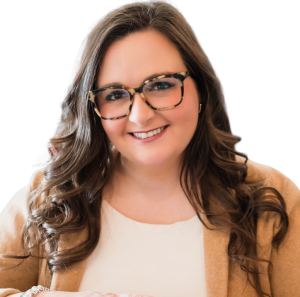 Dr. Grace recently released a new book, Generations in the World of Work, co-authored with Dr. Corey Seemiller. This book talks about how to maximize productivity, relationships, well-being, and engagement across generations to create thriving workplaces. 50,000+ podcast downloads from her popular #GenZ podcast, featuring insights from Generation Z and thought leaders.
Dr. Grace recently released a new book, Generations in the World of Work, co-authored with Dr. Corey Seemiller. This book talks about how to maximize productivity, relationships, well-being, and engagement across generations to create thriving workplaces. 50,000+ podcast downloads from her popular #GenZ podcast, featuring insights from Generation Z and thought leaders.
Extensive research exploring generational cohorts, leading independent generational research since 2014. Co-author of Generation Z Around the World (2024), Generation Z: A Century in the Making (2019), and Generation Z Goes to College (2016). Served as a speaker on the topic of generations for over 80 campuses, organizations, and companies.
Overcoming that intergenerational gap is just being able to say, I recognize that today's 22-year-olds are different than when I was 22 and that's okay, but where can we find our common ground to have that connection?
Meghan Grace
More great podcast episodes.
Season 7 | Episode 1
The L&D Approach That Actually Works
Season 6 | Episode 18
That’s a Wrap!
Season 6 | Episode 17
Work-Life Integration
Season 6 | Episode 16
Laughing it Off
Season 6 | Episode 15
Corporate Volunteerism in Action
Season 6 | Episode 14
Collaborative Play at Work
Season 6 | Episode 13
The Science of Supportive Workplaces
Season 6 | Episode 12
The Power of Being Present
